BusinessEurope Headlines No. 2020-32
Only ambitious actions can support our SMEs
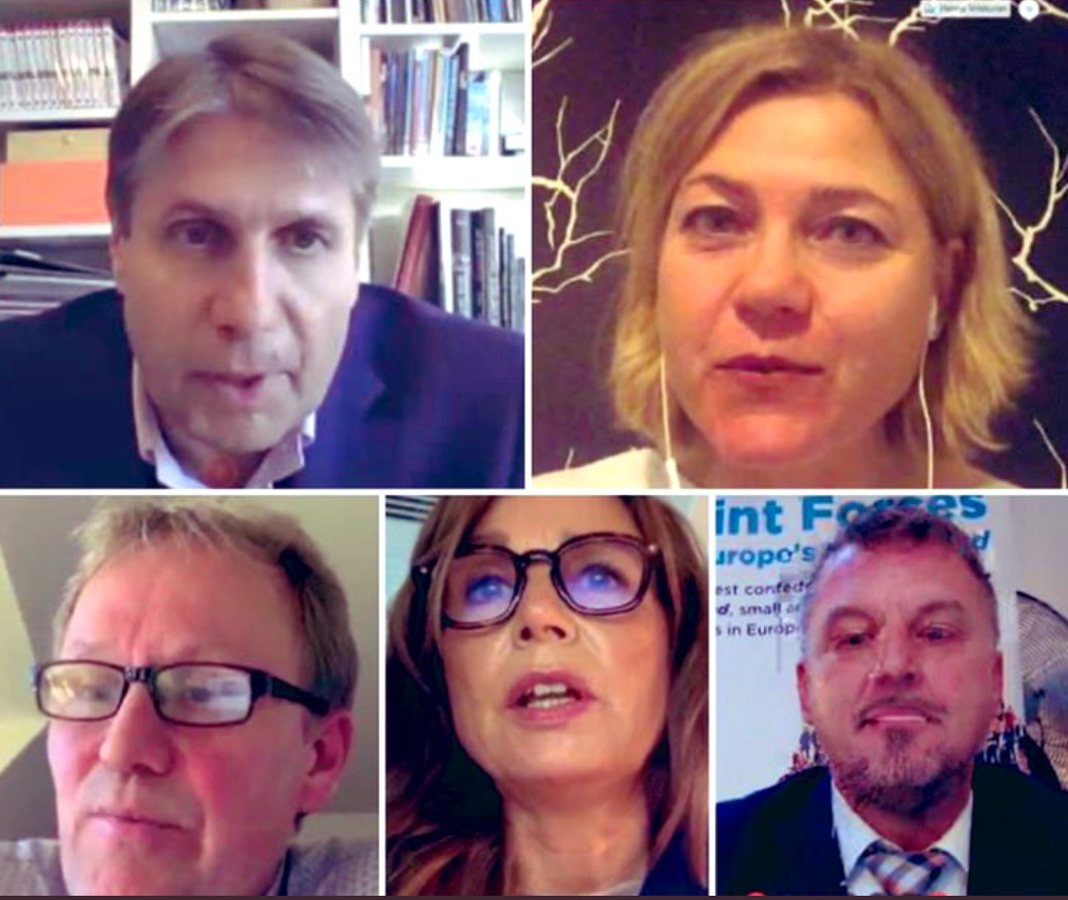
“To reach the goals of a sustainable and digital Europe, we need to make sure that the financial package, agreed in July, reaches companies, SMEs in particular, and workers rapidly. The EU cannot waste this once in a generation opportunity to boost competitiveness and employment”, said BusinessEurope’s Director General Markus J. Beyrer during a meeting of the EPP SME Circle on 5 October with a number of key MEPs, including the group co-chairs MEP Jens Gieseke and MEP Henna Virkkunen. “In terms of the key initiatives, this means in particular underpinning the Green Deal and the new targets with a credible industrial strategy to mobilise the necessary investments in green technologies; supporting the digital transformation of our economies and societies; tearing down all the Single Market barriers by restoring pre-COVID free movement conditions”, Beyrer added.
The following day, the Chair of BusinessEurope “Entrepreneurship and SME” Committee Anna-Lena Bohm, participated in a meeting of the SME Envoy Network, featuring the presence of Director General at the European Commission, Kerstin Jorna, responsible for Internal Market, Industry, Entrepreneurship and SMEs. Anna-Lena focused on the importance of the European Single Market: “The Commission should keep on doing everything in its capacity to avoid a negative impact of measures taken at borders between member states. At the same, the EU should look ahead with actions facilitating easier expansion of SMEs activities in the EU, as only 2% of the European SMEs invest abroad by establishing companies there”. She also pointed out that the Commission should assess the need for additional company law measures going in this direction. An example in this sense could be a European company law form designed for SMEs.
Contact: Daniele Olivieri
EFNI 9.5 "What tomorrow brings": the economy during and after COVID-19
 On 2 October, Director General Markus J. Beyrer participated in the opening of European Forum of New Ideas (EFNI), organised by our Polish member federation Lewiatan. This virtual edition, EFNI 9.5, was under the slogan “What tomorrow brings” and focused on the reconstruction and functioning of the economy during and after the COVID-19 crisis. Beyrer underlined the urgency to build a solid foundation for an innovative and resilient economy, also tackling indicators like investment in research and development or STEM skills (science, technology, engineering and mathematics) where Europe had been lagging behind its competitors. A comprehensive policy response to the current crisis is key to enable Europe to master the challenges of today and tomorrow.
On 2 October, Director General Markus J. Beyrer participated in the opening of European Forum of New Ideas (EFNI), organised by our Polish member federation Lewiatan. This virtual edition, EFNI 9.5, was under the slogan “What tomorrow brings” and focused on the reconstruction and functioning of the economy during and after the COVID-19 crisis. Beyrer underlined the urgency to build a solid foundation for an innovative and resilient economy, also tackling indicators like investment in research and development or STEM skills (science, technology, engineering and mathematics) where Europe had been lagging behind its competitors. A comprehensive policy response to the current crisis is key to enable Europe to master the challenges of today and tomorrow.
Contact: Jasmin Ploner
European business in China calls for reform of China’s state-led economy
 “Our position paper is comprehensive as always and it does not paint a black and white picture of the economic and political developments in China. Instead, we see China moving in multiple directions at the same time. One overarching priority prevails, however – the urgency for China to reform its state-led economy into a more market-oriented one”, said Joerg Wuttke, President of the European Union Chamber of Commerce in China (EUCCC), during a webinar co-hosted by BusinessEurope. “China appears to be moving into a direction of ‘one economy, two systems’, a situation in which the rules and benefits for state owned enterprises and private enterprises differ”, he continued. BusinessEurope’s Deputy Director General Luisa Santos, who moderated the discussion, highlighted that the position paper is an excellent resource for everyone to get a sense of the state of play for European businesses in China. “It highlights a number of longstanding and new challenges that affect European businesses. In the present economic situation, we hope that the Chinese government heeds these recommendations”, he said. The paper was published in September and can be downloaded here.
“Our position paper is comprehensive as always and it does not paint a black and white picture of the economic and political developments in China. Instead, we see China moving in multiple directions at the same time. One overarching priority prevails, however – the urgency for China to reform its state-led economy into a more market-oriented one”, said Joerg Wuttke, President of the European Union Chamber of Commerce in China (EUCCC), during a webinar co-hosted by BusinessEurope. “China appears to be moving into a direction of ‘one economy, two systems’, a situation in which the rules and benefits for state owned enterprises and private enterprises differ”, he continued. BusinessEurope’s Deputy Director General Luisa Santos, who moderated the discussion, highlighted that the position paper is an excellent resource for everyone to get a sense of the state of play for European businesses in China. “It highlights a number of longstanding and new challenges that affect European businesses. In the present economic situation, we hope that the Chinese government heeds these recommendations”, he said. The paper was published in September and can be downloaded here.
Contact: Maurice Fermont
Data flow guidance urgently needed
 BusinessEurope recently sent a letter to the European Data Protection Board (EDPB) in order to cite its concern regarding the outcome of the recent Schrems II case. While business accepts the verdict of Europe’s highest court, we remain deeply concerned by the emphasis now placed on business to carry out “risk assessments” of 3rd country domestic laws in order to ascertain whether international data transfers can continue. Thankfully, the EDPB will soon release guidance on this issue to ensure businesses can continue to transfer data internationally in a pragmatic and legally certain way. But this is no easy task. Different data transfers carry different risks. The solutions therefore provided need to be wide reaching, harmonised and consistent all at the same time. We also need to understand the limited resources of smaller companies willing to compete in the global economy that previously relied on the now redundant regime. We urge the EDPB to act as rapidly as possible to provide business with this vital clarification and stand ready to assist. Business is at a pivotal juncture in order to recover from the effects of COVID-19 and a weak global economy - extending the existing legal uncertainty of global data flows will not aid this.
BusinessEurope recently sent a letter to the European Data Protection Board (EDPB) in order to cite its concern regarding the outcome of the recent Schrems II case. While business accepts the verdict of Europe’s highest court, we remain deeply concerned by the emphasis now placed on business to carry out “risk assessments” of 3rd country domestic laws in order to ascertain whether international data transfers can continue. Thankfully, the EDPB will soon release guidance on this issue to ensure businesses can continue to transfer data internationally in a pragmatic and legally certain way. But this is no easy task. Different data transfers carry different risks. The solutions therefore provided need to be wide reaching, harmonised and consistent all at the same time. We also need to understand the limited resources of smaller companies willing to compete in the global economy that previously relied on the now redundant regime. We urge the EDPB to act as rapidly as possible to provide business with this vital clarification and stand ready to assist. Business is at a pivotal juncture in order to recover from the effects of COVID-19 and a weak global economy - extending the existing legal uncertainty of global data flows will not aid this.
![]() Contact: Patrick Grant
Contact: Patrick Grant
BusinessEurope at 26th European Corporate Governance Conference
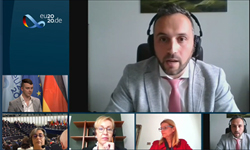 If the EU decides to go ahead with an initiative on corporate due diligence it needs to have a balanced approach that is realistic in what companies can and are able to do (e.g. not mixing up role and responsibilities of companies with the one of governments) and leads to a true level playing field by avoiding a patchwork of legal frameworks. This was one of the key messages of Pedro Oliveira, BusinessEurope’s Director for Legal Affairs at the 26th European Corporate Governance Conference , organised by the German Presidency of the Council of the European Union on 6 October. He also pointed out that a robust impact assessment will be required that ensures legal certainty and avoids unintended consequences. Due diligence is a process and should not be treated as a result-oriented standard (or an obligation of results). This would be unfair and disproportionate.
If the EU decides to go ahead with an initiative on corporate due diligence it needs to have a balanced approach that is realistic in what companies can and are able to do (e.g. not mixing up role and responsibilities of companies with the one of governments) and leads to a true level playing field by avoiding a patchwork of legal frameworks. This was one of the key messages of Pedro Oliveira, BusinessEurope’s Director for Legal Affairs at the 26th European Corporate Governance Conference , organised by the German Presidency of the Council of the European Union on 6 October. He also pointed out that a robust impact assessment will be required that ensures legal certainty and avoids unintended consequences. Due diligence is a process and should not be treated as a result-oriented standard (or an obligation of results). This would be unfair and disproportionate.
Contact: Pedro Oliveira
Improving the role of social dialogue in the South Mediterranean region
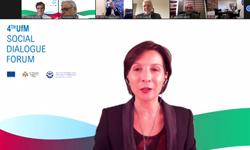 The European employer community appreciates cooperating with social partners from the Southern shore of the Mediterranean. This forum has been useful for social partners from both regions to share their recent experiences, notably in relation with the management of the economic and social consequences of COVID-19 at national level and in both regions, and with a view to improving the management of migratory flows between both regions. European employers support the Southern Mediterranean social partners’ endeavours to improve the role of social dialogue in their countries. These were the key messages given by Maxime Cerutti, Director for Social Affairs, during the fourth Union for the Mediterranean (UfM) social dialogue forum that was held virtually on 6-7 October, with the participation of around one hundred social partner representatives coming from both regions.
The European employer community appreciates cooperating with social partners from the Southern shore of the Mediterranean. This forum has been useful for social partners from both regions to share their recent experiences, notably in relation with the management of the economic and social consequences of COVID-19 at national level and in both regions, and with a view to improving the management of migratory flows between both regions. European employers support the Southern Mediterranean social partners’ endeavours to improve the role of social dialogue in their countries. These were the key messages given by Maxime Cerutti, Director for Social Affairs, during the fourth Union for the Mediterranean (UfM) social dialogue forum that was held virtually on 6-7 October, with the participation of around one hundred social partner representatives coming from both regions.
![]() Contact: Anna Kwiatkiewicz-Mory
Contact: Anna Kwiatkiewicz-Mory
Business and human rights: a tailored approach is needed
 "It is crucial that the responsibilities of states and businesses are clearly distinguished when tackling issues of decent work and human rights". This was one of the key messages of Rebekah Smith, BusinessEurope’s Deputy Director for Social Affairs at a conference on 6 October on decent work and human rights in supply chains, organised by the German Presidency of the Council of the European Union. Often systemic issues are at the core of human rights issues, such as weak governance or lack of implementation of existing laws. "We also need to find ways to tackle this, not only putting the onus on business", she pointed out. BusinessEurope also emphasised the need for tailoring actions to the specific circumstances of different businesses, for example their sector of activity, size, risks encountered in the supply chain and leverage.
"It is crucial that the responsibilities of states and businesses are clearly distinguished when tackling issues of decent work and human rights". This was one of the key messages of Rebekah Smith, BusinessEurope’s Deputy Director for Social Affairs at a conference on 6 October on decent work and human rights in supply chains, organised by the German Presidency of the Council of the European Union. Often systemic issues are at the core of human rights issues, such as weak governance or lack of implementation of existing laws. "We also need to find ways to tackle this, not only putting the onus on business", she pointed out. BusinessEurope also emphasised the need for tailoring actions to the specific circumstances of different businesses, for example their sector of activity, size, risks encountered in the supply chain and leverage.
Contact: Rebekah Smith
Discussion with German Presidency on economic and financial affairs
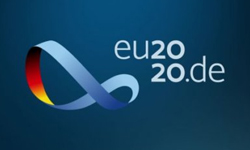 BusinessEurope's Economic and Financial Affairs committee welcomed Thomas Westphal, Director General for European Policy at the German Federal Ministry of Finance, to their virtual meeting on 1st October. Westphal outlined the priorities of the German Presidency of the Council of the European Union in the ECOFIN area, and discussed progress on reaching institutional agreement on the new Multiannual Financial Framework (MFF) and the Next Generation Recovery instrument. BusinessEurope members emphasised both the importance of getting timely agreement and the implementation of the MFF/Next generation package to ensure the funds really help boost the recovery, and of ensuring that the money is well spent by Member States, and able to drive long-term growth.
BusinessEurope's Economic and Financial Affairs committee welcomed Thomas Westphal, Director General for European Policy at the German Federal Ministry of Finance, to their virtual meeting on 1st October. Westphal outlined the priorities of the German Presidency of the Council of the European Union in the ECOFIN area, and discussed progress on reaching institutional agreement on the new Multiannual Financial Framework (MFF) and the Next Generation Recovery instrument. BusinessEurope members emphasised both the importance of getting timely agreement and the implementation of the MFF/Next generation package to ensure the funds really help boost the recovery, and of ensuring that the money is well spent by Member States, and able to drive long-term growth.
Contact: James Watson
EU external financing instruments: how to support private sector engagement
 On 2 October, BusinessEurope published its new position paper on the EU external financing instruments in the new multiannual financial framework. The private sector needs to be strongly involved in development efforts in order to mobilise the quantities of investment necessary to reach the sustainable development goals. The implementation of the EU External Investment Plan and the increased focus on private sector development in EU development policy are promising in this regard. Moreover, the rationalisation of the EU external financing instruments under the Neighbourhood, Development and International Cooperation Instrument (NDICI) has the potential to make it easier for companies to keep an overview of instruments relevant for them. However, for these instruments to be used by companies of all sizes, they need to be designed to reflect the way the private sector operates. As the next months will be decisive for the design and priorities of the EU’s external financing instruments, our paper aims to contribute to the discussions on the programming of the NDICI by suggesting a number of principles that need to be taken into account for EU external financing instruments to enable businesses step up their contribution to the 2030 agenda.
On 2 October, BusinessEurope published its new position paper on the EU external financing instruments in the new multiannual financial framework. The private sector needs to be strongly involved in development efforts in order to mobilise the quantities of investment necessary to reach the sustainable development goals. The implementation of the EU External Investment Plan and the increased focus on private sector development in EU development policy are promising in this regard. Moreover, the rationalisation of the EU external financing instruments under the Neighbourhood, Development and International Cooperation Instrument (NDICI) has the potential to make it easier for companies to keep an overview of instruments relevant for them. However, for these instruments to be used by companies of all sizes, they need to be designed to reflect the way the private sector operates. As the next months will be decisive for the design and priorities of the EU’s external financing instruments, our paper aims to contribute to the discussions on the programming of the NDICI by suggesting a number of principles that need to be taken into account for EU external financing instruments to enable businesses step up their contribution to the 2030 agenda.
![]() Contact: Benedikt Wiedenhofer
Contact: Benedikt Wiedenhofer
Strong cooperation with European Intellectual Property Office
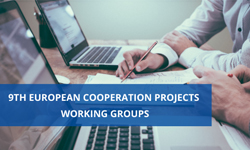 On the week of 28 September, BusinessEurope actively participated in a number of virtual meetings organised by the European Union Intellectual Property Office (EUIPO). Adviser Elena Bertolotto took part in a discussion on to how to support small and medium-sized enterprises to improve their competitiveness through raising their awareness of the importance and value of intellectual property rights and facilitating their registration. The Chairman of the Trade Marks and Designs Working Group, Martina Eberle, participated in discussions on the PEER project, which aims to create a pan-European network of IP experts among Member States IP Offices, User Associations and the EUIPO. This “PEER” will exchange knowledge, collaborate in work-streams and analyse topics and issues in specific areas. Eberle also participated in the Customer Panel, an initiative which aims at improving EUIPO customer services by identifying customers’ needs and behaviours, integrating their feedback and delivering solutions adapted to the different customer segments. Finally, Carsten Johne – Member of the Trademarks and Designs Working Group - attended the virtual EUIPO Liaison Meetings on 6-8 October. All these activities highlight BusinessEurope’s strong commitment in maintaining strong links with EU IP experts and cooperating with the EUIPO and Member State IP Offices to continue improving the EU IP system and ensure that it remains user-focused.
On the week of 28 September, BusinessEurope actively participated in a number of virtual meetings organised by the European Union Intellectual Property Office (EUIPO). Adviser Elena Bertolotto took part in a discussion on to how to support small and medium-sized enterprises to improve their competitiveness through raising their awareness of the importance and value of intellectual property rights and facilitating their registration. The Chairman of the Trade Marks and Designs Working Group, Martina Eberle, participated in discussions on the PEER project, which aims to create a pan-European network of IP experts among Member States IP Offices, User Associations and the EUIPO. This “PEER” will exchange knowledge, collaborate in work-streams and analyse topics and issues in specific areas. Eberle also participated in the Customer Panel, an initiative which aims at improving EUIPO customer services by identifying customers’ needs and behaviours, integrating their feedback and delivering solutions adapted to the different customer segments. Finally, Carsten Johne – Member of the Trademarks and Designs Working Group - attended the virtual EUIPO Liaison Meetings on 6-8 October. All these activities highlight BusinessEurope’s strong commitment in maintaining strong links with EU IP experts and cooperating with the EUIPO and Member State IP Offices to continue improving the EU IP system and ensure that it remains user-focused.
Contact: Elena Bertolotto
Calendar 
- 12-16 October: 18th European Week of Regions and Cities
- 19-22 October: EU Green Week
- 22 October: What trade can do for climate - Apero webinar 2/3: Bilateral actions
- 5-6 November: Third policy learning forum on upskilling pathways: a vision for the future
Reminder: please have a look at our privacy policy